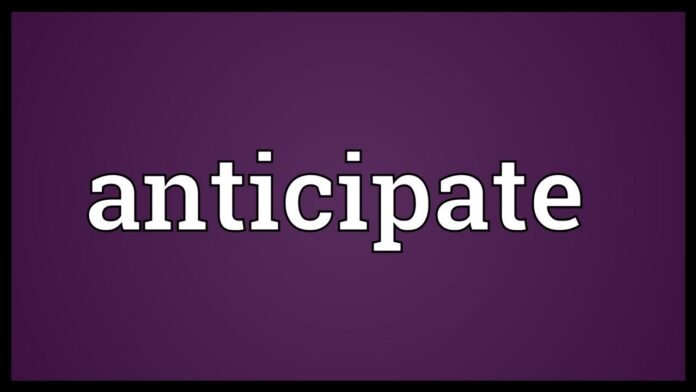The world is constantly evolving, and with it, the future. As individuals, communities, and societies, we are often faced with the task of making decisions that will impact our future. Whether it’s a personal decision such as investing in education or a collective one such as choosing a political leader, the ability to anticipate the future has become a critical skill. The act of seeking to overlook or foresee the situation of the future in the present is known as foresight or anticipation.
Foresight can be defined as the ability to predict future events or developments. This skill is not exclusive to one particular field, but it is utilized in various areas such as business, science, politics, and everyday life. In business, foresight can help a company identify potential threats, anticipate trends, and make better decisions. In science, it is used to forecast natural disasters, disease outbreaks, and other events that may affect humanity. In politics, foresight is vital in planning for the future, creating policies, and implementing strategies that promote long-term success.
Anticipation, on the other hand, refers to the ability to recognize and prepare for future challenges or opportunities. Anticipation requires one to analyze the present situation and consider how it may change in the future. Anticipation is essential in decision-making because it allows individuals to act proactively rather than reactively.
The Relationship between Foresight and Anticipation
Foresight and anticipation are closely related, and they often go hand in hand. Foresight provides the ability to identify potential future outcomes, while anticipation enables individuals to prepare for them. For instance, in business, foresight may indicate that a new technology is likely to disrupt the market, while anticipation enables a company to prepare for the change by investing in research and development. In this way, foresight and anticipation complement each other and increase the likelihood of success in the future.
However, it is worth noting that foresight and anticipation can also be at odds. In some cases, focusing too much on the future can lead to neglecting the present. For example, a business that is too focused on future growth may fail to address current customer needs, which can result in losing existing customers. Similarly, anticipating future challenges can lead to over-preparation, which may not be necessary, resulting in wasted resources.
The Benefits of Foresight and Anticipation
The ability to anticipate the future provides several benefits. One of the most significant benefits is the ability to plan ahead. By anticipating potential challenges or opportunities, individuals can create a roadmap for success. This roadmap can include short-term and long-term goals, timelines, and strategies. With a clear plan in place, individuals can take proactive steps towards achieving their objectives.
Foresight and anticipation also help individuals make better decisions. By considering the potential outcomes of a decision, individuals can weigh the pros and cons more effectively. This can prevent them from making hasty decisions that may have negative consequences in the future. Furthermore, the ability to anticipate future trends can give individuals a competitive advantage. By staying ahead of the curve, individuals can position themselves for success in their respective fields.
Another benefit of foresight and anticipation is their potential to reduce risk. By anticipating potential risks, individuals can take steps to mitigate or avoid them. This can save time, money, and other resources that would otherwise be spent addressing a problem that could have been prevented. In business, for example, companies that anticipate potential threats are better equipped to survive economic downturns or disruptions to the market.
Challenges Associated with Foresight and Anticipation
Despite the benefits of foresight and anticipation, there are several challenges associated with these skills. One of the most significant challenges is the inherent uncertainty of the future. The future is always unknown, and no amount of analysis can guarantee accurate predictions. As a result, individuals may find it challenging to make decisions based on uncertain information. Additionally, individuals may have biases or blind spots that prevent them from accurately assessing the present situation and anticipating the future.
Another challenge associated with foresight and anticipation is the potential for overconfidence. Individuals may believe they have accurately predicted the future, leading them to make risky decisions based on their assumptions. This can result in significant losses if their predictions do not come to fruition.
Furthermore, foresight and anticipation can be time-consuming and require significant resources. Analyzing data, conducting research, and creating plans can be a lengthy and expensive process. This can be a barrier for individuals or organizations that lack the necessary resources.
Strategies for Improving Foresight and Anticipation
Despite the challenges associated with foresight and anticipation, there are strategies that individuals can use to improve their ability to anticipate the future. One approach is to gather diverse perspectives. Individuals can benefit from seeking out viewpoints that differ from their own. This can help them identify blind spots and consider a wider range of potential outcomes.
Another strategy is to stay informed about current events and trends. By staying up-to-date on the latest developments, individuals can identify patterns and anticipate future changes. Additionally, networking with individuals in different industries can provide valuable insights into emerging trends and potential challenges.
Additionally, individuals can practice scenario planning. This involves creating multiple scenarios for potential outcomes and developing plans for each scenario. Scenario planning can help individuals prepare for a wide range of potential futures and prevent them from being caught off guard by unexpected events.
Conclusion
The ability to anticipate the future is a critical skill in today’s fast-paced and ever-changing world. Foresight and anticipation can provide significant benefits, such as improved decision-making, risk reduction, and competitive advantage. However, there are also challenges associated with these skills, including the inherent uncertainty of the future and the potential for overconfidence.
Despite these challenges, individuals can improve their ability to anticipate the future by gathering diverse perspectives, staying informed about current events and trends, and practicing scenario planning. With these strategies in place, individuals can better prepare for the future and position themselves for success in their personal and professional lives.
Google News | Telegram
















